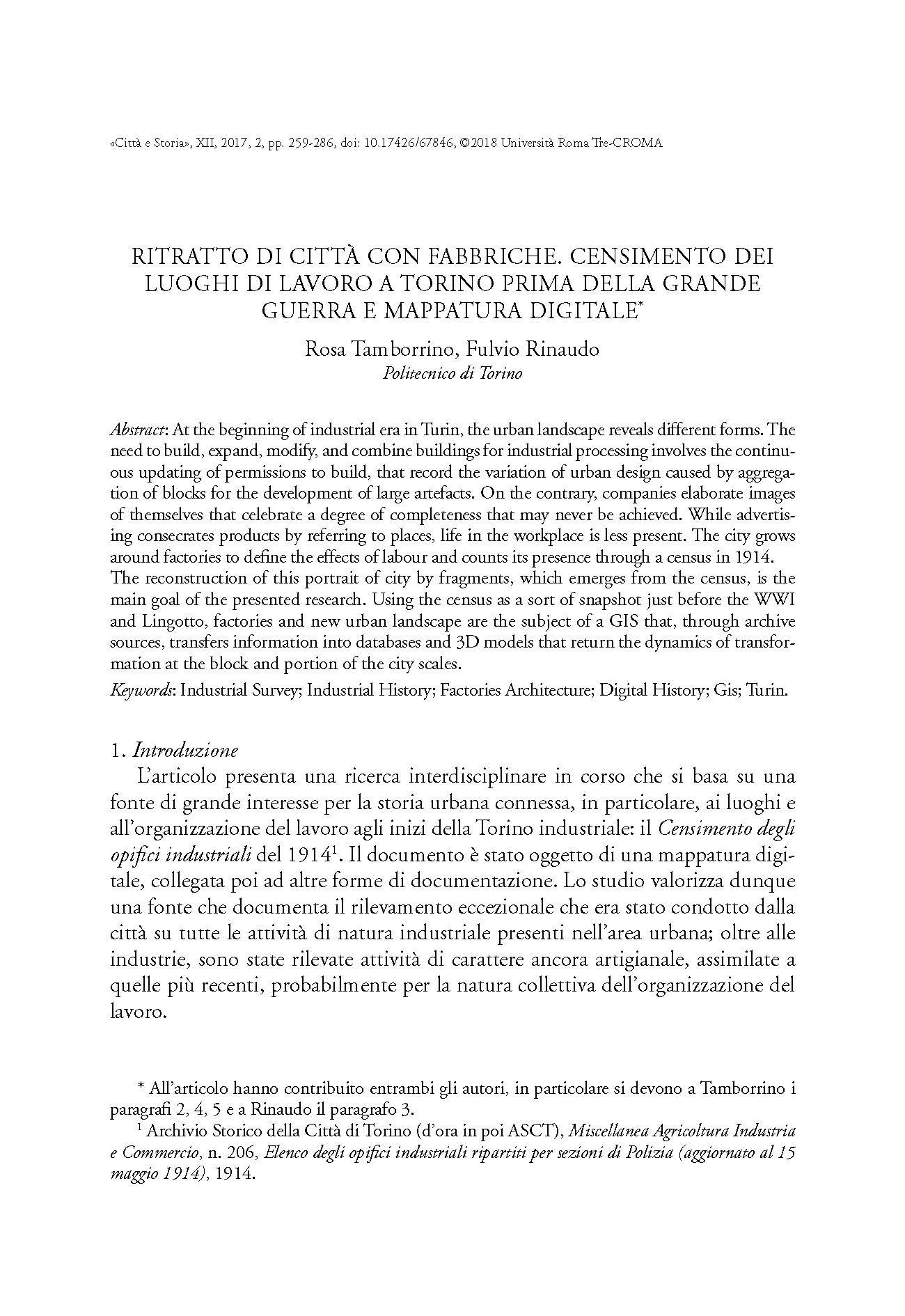Ritratto di città con fabbriche. Censimento dei luoghi di lavoro a Torino prima della Grande Guerra e mappatura digitale
6,00 €
At the beginning of industrial era in Turin, the urban landscape reveals different forms. The
need to build, expand, modify, and combine buildings for industrial processing involves the continuous
updating of permissions to build, that record the variation of urban design caused by aggregation
of blocks for the development of large artefacts. On the contrary, companies elaborate images
of themselves that celebrate a degree of completeness that may never be achieved. While advertising
consecrates products by referring to places, life in the workplace is less present. The city grows
around factories to define the effects of labour and counts its presence through a census in 1914.
The reconstruction of this portrait of city by fragments, which emerges from the census, is the
main goal of the presented research. Using the census as a sort of snapshot just before the WWI
and Lingotto, factories and new urban landscape are the subject of a GIS that, through archive
sources, transfers information into databases and 3D models that return the dynamics of transformation
at the block and portion of the city scales.
At the beginning of industrial era in Turin, the urban landscape reveals different forms. The
need to build, expand, modify, and combine buildings for industrial processing involves the continuous
updating of permissions to build, that record the variation of urban design caused by aggregation
of blocks for the development of large artefacts. On the contrary, companies elaborate images
of themselves that celebrate a degree of completeness that may never be achieved. While advertising
consecrates products by referring to places, life in the workplace is less present. The city grows
around factories to define the effects of labour and counts its presence through a census in 1914.
The reconstruction of this portrait of city by fragments, which emerges from the census, is the
main goal of the presented research. Using the census as a sort of snapshot just before the WWI
and Lingotto, factories and new urban landscape are the subject of a GIS that, through archive
sources, transfers information into databases and 3D models that return the dynamics of transformation
at the block and portion of the city scales.

